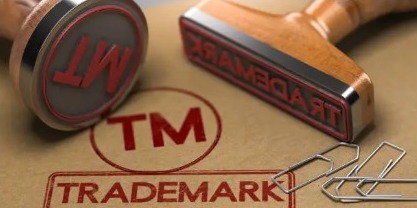In India, trademarks play a vital role in protecting the identity and goodwill of businesses. The concept of trademark classification is crucial for effective registration and enforcement of trademark rights. We do a quick dive into what trademarks mean and trademark classes in India.
Introduction to Trademark Classes in India
The Trademarks Act, 1999, governs the registration and protection of trademarks in India, and it categorizes goods and services into different classes for registration purposes. These classes are in line with the International (Nice) Classification of Goods and Services. Before delving into the classification system, it’s essential to understand what a trademark is. A trademark is a symbol, word, phrase, logo, design, or a combination thereof that identifies and distinguishes the source of goods or services of one party from those of others. It serves as a badge of origin, indicating the quality and reputation associated with the products or services offered under that mark.
Understanding the Varied Categories of Trademarks in India
In the Indian context, trademarks serve as crucial tools for safeguarding the identity and reputation of businesses. The framework of trademark classification holds significant importance in ensuring the efficient registration and protection of trademark rights. Governed by the Trademarks Act of 1999, India delineates goods and services into distinct classes for the purpose of registration. This classification aligns with the International (Nice) Classification of Goods and Services.
Defining Trademarks:
Before exploring the classification structure, it’s fundamental to grasp the essence of a trademark. A trademark encompasses symbols, words, phrases, logos, designs, or their combinations, which serve to identify and differentiate the origin of goods or services offered by one entity from those of others. Acting as a hallmark of origin, trademarks signify the quality and standing associated with the products or services bearing the mark.
Classifying Trademarks:
The trademark classification system in India comprises 45 classes, with 34 dedicated to goods and 11 to services. These classes encompass a broad spectrum of products and services, facilitating the systematic registration and management of trademarks. Each class denotes a unique category of goods or services, enabling precise identification and distinction within the commercial sphere. Below, we provide a succinct overview of the diverse classes of trademarks in India:
Trademark Classes in India – for Goods:
- Class 1: Chemicals used in industry, science, photography, agriculture, horticulture, and forestry; unprocessed plastics; chemical substances for preserving foodstuffs.
- Class 2: Preservatives against rust, paints, and varnishes; Preservatives used to prevent deterioration of wood, foil, and powder from metals, colourants, painters, artists, and decorators.
- Class 3: Substances for laundry use, bleaching preparations, cleaning, polishing, essential oils, cosmetics, soaps, perfumery, abrasive preparations, and hair lotions.
- Class 4: Industrial oils and greases; candles, wicks; lubricants; fuels and illuminants; dust absorbing, wetting and binding compositions.
- Class 5: Pharmaceutical, fungicides, herbicides; veterinary and sanitary preparations; food for babies; disinfectants; dietetics.
- Class 6: Common metals, alloys, small metal hardware products, and building materials made of metal. Metal pipes and other goods which are not a part of other classes.
- Class 7: Machines and machine tools; machine coupling and transmission equipment; agricultural implements except those operated by hand; incubators for eggs.
- Class 8: Manual hand tools and implements; side arms; razors; cutlery.
- Class 9: Scientific, measuring, apparatus for recording, electric, photographic, data processing equipment and computers; transmission or reproduction of sound or visuals.
- Class 10: Dental and veterinary products; surgical and artificial limbs; medical, eyes and teeth; suture materials; orthopaedic articles.
- Class 11: Apparatus for lighting, cooking, refrigerating, heating, steam generating, water supply and sanitary purposes; drying and ventilating.
- Class 12: Vehicles: products for movement by water, land, or air.
- Class 13: Firearms; explosives; fireworks; ammunition and projectiles.
- Class 14: Precious metals, their alloys and products made from them; precious stones; jewellery; chronometric instruments and horological.
- Class 15: Instruments used to make music.
- Class 16: Printed matter; stationery; Paper, cardboard, and goods made from these materials; brushes; plastic materials for packaging; typewriters and office requisites.
- Class 17: Insulating materials; flexible pipes; rubber, asbestos, plastics in extruded form for manufacture; mica and goods made from these materials; packing, stopping.
- Class 18: Umbrellas, parasols and walking sticks; leather and imitations of leather; animal skins, hides, trunks and travelling bags; whips, saddlery; harness.
- Class 19: Building materials (non-metallic), non-metallic transportable buildings; non-metallic rigid pipes for building; asphalt, pitch, and bitumen; monuments.
- Class 20: Furniture, mirrors, picture frames; ivory, whalebone, shell, amber; goods of wood, cork, bone, mother-of-pearl, reed, cane, wicker, horn.
- Class 21: Kitchen utensils; unworked or semi-worked glass; combs and sponges; articles for cleaning purposes; earthenware and glassware.
- Class 22: Awnings, tarpaulins, sails, sacks, ropes, string, nets, tents, raw fibrous textile materials; padding and stuffing materials(except rubber or plastics).
- Class 23: Yarns and threads.
- Class 24: Bed and table covers; Textiles.
- Class 25: Clothing, headgear, footwear.
- Class 26: Ribbons and braid; Lace and embroidery, buttons, artificial flowers; hooks and eyes, pins and needles.
- Class 27: Carpets, rugs, wall hangings(non-textile), mats and matting, linoleum.
- Class 28: Gymnastic and sporting articles; games and playthings; decorations for Christmas trees.
- Class 29: Meat, fish, poultry and game; meat extracts; preserved, dried and cooked fruits and vegetables; jams, edible oils and fats; fruit sauces; eggs, milk and milk products.
- Class 30: Coffee, tea, cocoa, sugar, rice, tapioca, mustard; vinegar; spices; ice sago; bread, pastry and confectionery, ices; honey, treacle; yeast, baking powder; salt.
- Class 31: Agricultural, horticultural, and forestry products and grains; foodstuffs for animals, malt; live animals; fresh fruits and vegetables; seeds, natural plants and flowers.
- Class 32: Beers, mineral and aerated waters, non-alcoholic drinks, syrup, fruit drinks and fruit juices.
- Class 33: Alcoholic beverages(except beers).
- Class 34: Tobacco, smokers’ articles, matches.
Trademark Classes in India – for Services:
- Class 35: Advertising, business administration, business management, office functions.
- Class 36: Insurance, financial affairs, monetary affairs, real estate affairs.
- Class 37: Building construction; installation services; repair.
- Class 38: Telecommunications.
- Class 39: Transport; travel arrangement; packaging and storage of goods.
- Class 40: Treatment of materials.
- Class 41: Education; entertainment; sporting and cultural activities; providing of training.
- Class 42: Scientific, design, and technological services; industrial analysis and research services; computer hardware development.
- Class 43: Temporary accommodation; services for food and drink.
- Class 44: Medical services, horticulture, forestry services, veterinary services, hygienic and beauty care, agriculture.
- Class 45: Security services for property protection; personal and social services rendered by others.
Other useful links:
If you are looking to incorporate a startup: Navigating Legal Challenges: A Comprehensive Overview of Startup Compliance in India. You can also read our article on: Endorsement Know-Hows! For Celebrities, Influencers and Virtual Influencers. Visit our publications page for detailed articles on contemporary legal issues and updates.
Corrida Legal is the preferred corporate law firm in Gurgaon (Delhi NCR) and Mumbai. Reach out to us on LinkedIn or contact us at contact@corridalegal.com/+91-8826680614 in case you require any legal assistance.



